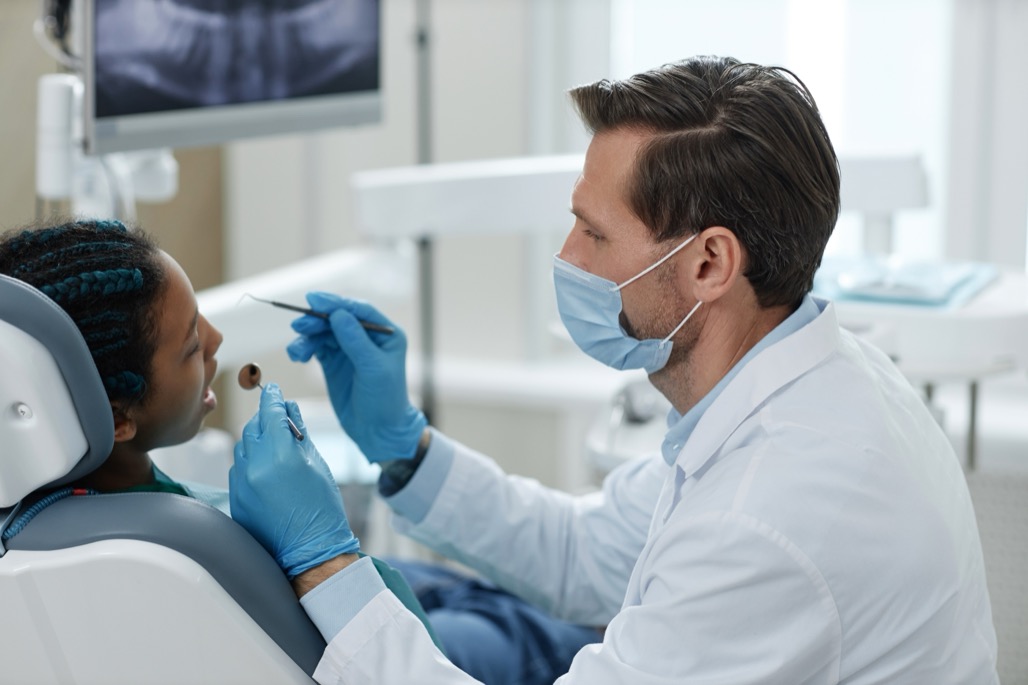The Advantages of Selecting a Same Day Dental Crown for Quick Repair Service
Important Dental Treatment Procedures for Preserving Healthy Teeth and Gums
Maintaining ideal dental health is crucial for general health, and recognizing crucial dental care treatments is the initial step toward attaining this objective. Normal dental exams and specialist cleansings play a critical function in the very early discovery of potential issues, while daily practices such as brushing and flossing are fundamental for combating plaque and food particles.
Routine Oral Exams
Routine oral check-ups are important for maintaining optimum oral wellness and stopping possible concerns. These visits normally take place every 6 months and offer several purposes, including the early detection of oral issues such as dental caries, gum illness, and dental cancer. By identifying these concerns at their start, people can gain from much less intrusive treatments and improved outcomes.

Furthermore, regular check-ups provide a chance for dental experts to offer customized advice on oral hygiene methods, dietary choices, and way of living alterations that can improve general oral health. Developing a regimen of regular examinations fosters an aggressive method to dental care, encouraging clients to organize their oral health and wellness and inevitably bring about a brighter, healthier smile. Overlooking these necessary check outs can cause much more serious problems, emphasizing their importance in preventative dental treatment.

Specialist Cleansings
An essential component of keeping oral health is the expert cleansing executed by a dental hygienist. These cleansings, usually advised every six months, are vital for the avoidance of oral problems such as tooth cavities and gum condition. Same Day Crowns. During an expert cleaning, the hygienist employs specialized devices to remove plaque and tartar buildup from the teeth and along the gum line, areas that normal brushing might miss out on
The procedure starts with a detailed exam of the mouth. Following this, the hygienist makes use of a scaler to carefully scrape away solidified plaque. This is usually followed by a polishing treatment with a gritty tooth paste, which aids to eliminate surface area stains and smooth the enamel. Ultimately, the hygienist may use a fluoride treatment to strengthen the teeth and give additional defense versus degeneration.
Specialist cleansings not just boost the visual appeals of your smile however likewise dramatically contribute to general oral wellness. They enable very early detection of prospective problems, making it possible for prompt intervention. By prioritizing these cleanings, people can make sure that their oral hygiene regimen is enhanced by professional care, inevitably resulting in much healthier teeth and periodontals.
Daily Cleaning Techniques
Reliable everyday brushing techniques are vital for maintaining ideal oral health. Brushing your teeth at least two times a day, ideally in the morning and before going to bed, is necessary for removing plaque and protecting against dental caries. Select a soft-bristled toothbrush that fits easily in your hand and enables very easy accessibility to all locations of your mouth.
When brushing, hold the tooth brush at a 45-degree angle to your gums. This placement helps to cleanse not only the teeth however also the gumline, where plaque can collect. click here to find out more Use mild, round activities instead of aggressive back-and-forth strokes, which can hurt the gum tissues and enamel. Ensure to brush for a minimum of 2 mins, investing equal time on each quadrant of your mouth.
Do not fail to remember to comb the inner surfaces of your teeth, as well as your tongue, to get rid of bacteria and freshen your breath. Establishing a regular brushing routine will dramatically add to the long-lasting health of your teeth and gums.
Efficient Flossing Methods
Flossing is a crucial component of a thorough oral health regimen, playing a vital role in eliminating food particles and plaque from locations that a tooth brush can not reach. Efficient flossing techniques can dramatically boost the wellness of your teeth and gums, avoiding tooth cavities and gum tissue condition.
To start, use about 18 inches of dental floss, winding the ends around your center fingers, enabling for better control. Hold the floss snugly in between your thumbs and forefinger, carefully directing it in between your teeth with a sawing activity. Stay clear of snapping the floss, as this can trigger periodontal damages.
Once the floss reaches the gum line, curve it into a C shape versus one tooth and slide it below the gum tissue line delicately, ensuring to cleanse both sides of the tooth. Repeat this procedure for every tooth, making use of a tidy area of floss as you move from one tooth to the next.
It is advisable to floss at the very least when daily, ideally prior to cleaning, to maximize plaque removal. Integrating effective flossing methods into your oral hygiene regimen will contribute to overall dental wellness, making it a crucial method for preserving healthy and balanced teeth and gums.
Nutritional Factors To Consider for Oral Health
Numerous research studies demonstrate that dietary considerations play a Going Here crucial duty in maintaining oral health and preventing dental problems. A healthy diet regimen abundant in crucial nutrients is fundamental for the development and upkeep of healthy and balanced teeth and gums. Key nutrients, such as vitamin, calcium, and phosphorus D, contribute dramatically to the toughness of tooth enamel and the overall honesty of the dental dental caries.
Foods high in anti-oxidants, like vegetables and fruits, enhance periodontal wellness by decreasing inflammation and combating oxidative stress and anxiety. Additionally, adequate hydration is vital; water not only assists in the manufacturing of saliva, which reduces the effects of acids and cleans away food fragments, yet also help in maintaining a well balanced dental microbiome.
Limiting these foods, along with practicing excellent dental hygiene, is essential for dental health and wellness. Thus, an all natural method that consists of conscious dietary choices can significantly contribute to the avoidance of dental troubles and the promotion of overall oral wellness.
Final Thought

These visits commonly take place every six months and offer multiple functions, including the very early discovery of oral problems such as cavities, gum illness, and dental cancer cells.During a check-up, an oral expert carries out a complete examination of the teeth, gums, and bordering oral structures.Moreover, regular examinations offer a possibility for oral professionals to provide tailored guidance on oral hygiene techniques, dietary options, and way of life alterations that can enhance general oral health and wellness.In recap, keeping healthy and balanced teeth and gums requires adherence to necessary oral care procedures. Regular professional cleansings and oral examinations facilitate very early detection of dental issues and the elimination of plaque and tartar, respectively.